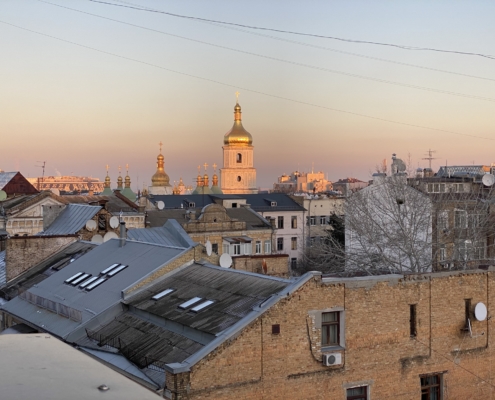Survey research is a tool. Like all tools, it can be used for good or evil.
It remains the best way to understand divisions in public opinion and the context that explains them. Once the data reveal the depth and breath of societies’ fault lines,  mitigating or exploiting the divisions becomes easier.
mitigating or exploiting the divisions becomes easier.
Pollsters working on the side of good do their best to mitigate those divisions. If the goal is exploiting divisions, however, polling can be the devil’s tool.
As a general policy, Quirk Global Strategies works on the side of good. We’ve talked a lot on this blog about how we use polls and focus groups to help our clients navigate complicated environments and advance a positive agenda. The type of strategic research which QGS conducts rarely appears in public. It’s used to guide decisions in support of and to measure the success of political campaigns, advocacy campaigns and program design or evaluation. Benign stuff, really.
What Would the Devil Do?
Back in the 2016 US election, there was a lot of talk about how Russian interests exploited societal divisions to benefit Donald Trump. I believed at the time, and still do — though I haven’t seen proof — that these operators relied on polling to identify segments of the US population most receptive to divisive election messages. The degree to which Russia interfered is hard to measure. However, exploiting existing divisions in society has long been part of Russia’s global playbook. Polling in the US is easy to do. There are plenty of US pollsters who would take Russian money. There are lots of divisions to exploit. Why wouldn’t they use research to inform their strategy?
If I were to interview the devil on how he uses polling to advance his agenda, I would probe on the example from the US: Who? When? How? Which issues? How much did you pay your pollster?
Does the Devil Poll in Ukraine?
Having worked in Ukraine since 2006 and watched hundreds of focus groups there in the last six years, I know the fault lines that transect Ukrainian society. Ukraine’s democracy is fragile. Corruption is a major issue. If I were the devil (I am not), I would ask myself which issues would most effectively undermine Ukrainians’ support for their government and increase societal tensions. I would commission research to identify the top issues and the populations most receptive to divisive messages, just to make sure I was on track.
Anyone who has spent as much time mucking around in Ukraine as the Russians already knows where the fault lines lie. Russia has sophisticated “political technologists.” Ukraine’s data collection capacity is robust. Survey research is cheap. They should be smart enough to check their assumptions against hard data, especially if they plan high-risk political investments. It would be dumb not to.
Is There Any Evidence?
“The Plot to Destroy Ukraine” by the Royal United Services Institute for Defense and Security Studies (RUSI), is an excellent report. Seeing the suggestion in print that Russians use opinion research in Ukraine shouldn’t have surprised me, but it did. Here’s a paragraph that pretty clearly lays out the devil’s usual polling strategy:
The energy axis of Russia’s unconventional operations was detected early by Kyiv and measures were taken to try to control its impact. Ukrainian officials believe that they have succeeded in countering this initial thrust, though Russia could go much further. Energy was one of many axes by which Russia was and is trying to undermine the credibility of the Ukrainian government. The aspiration is to create a domestic political crisis that Russia can capitalise upon to bring politicians willing to reach an accommodation with Moscow to power. Using extensive social surveys of Ukrainian citizens, the Russian government has been working out which pressures lead to a domestic reaction and which do not. [italics mine]
The paragraph ended with a tantalizing footnote but rather than evidence, it was just a link to some public polling. It did not answer any of my questions about how Russia uses opinion research in Ukraine: Who? How? When? Which issues?
Why Wouldn’t You?
It’s not surprising that Russians use opinion research to support their operation in Ukraine, just as they likely did in the US. Polling is something that everyone does but no one talks about, especially if you have bad intentions. If a tool exists that helps you advance your agenda, why wouldn’t you use it?
Quirk Global Strategies prefers to use opinion research for good rather than evil. If you want to learn more about how we can help you advance your agenda anywhere in the world without invading anything, contact us.


 Why should anyone care about the fate of a mid-sized Ukrainian city, pushed up hard against the Russian border?
Why should anyone care about the fate of a mid-sized Ukrainian city, pushed up hard against the Russian border?